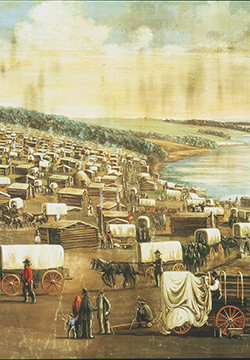June 20, 1843
Nauvoo City Ordinance: Specifically listed the tolls for the passage of various persons, wagons, carriages, and animals across the Mississippi by use of the ferry.

Read peer-reviewed articles about Joseph Smith and other Church history topics from BYU Studies. Visit byustudies.byu.edu.